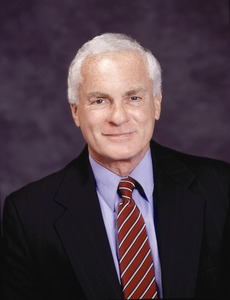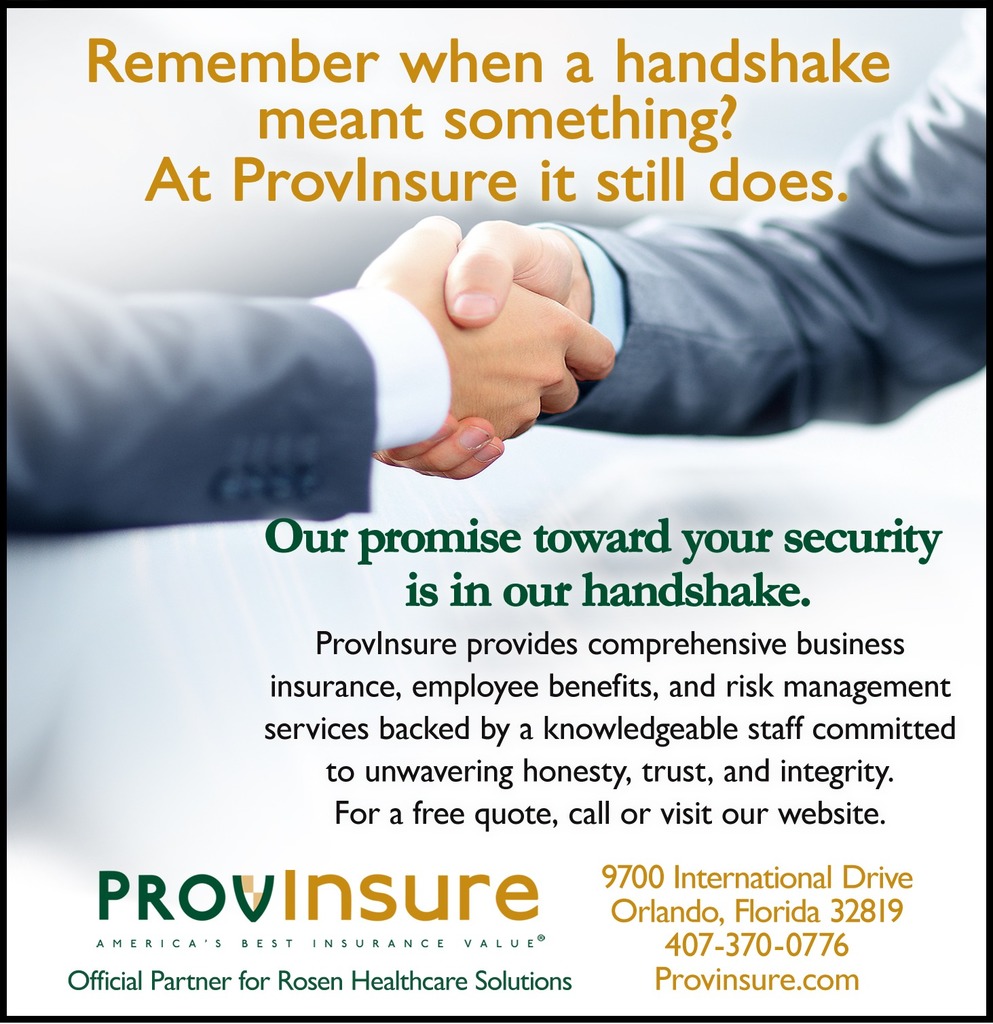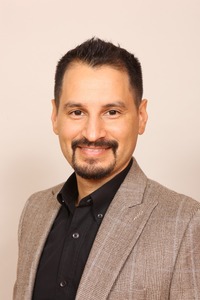Why Rosen Hotels & Resorts Accommodations Extend to Caring for Its Associates’ Health
// By Lisa D. Ellis //

Harris Rosen, Founder and President of Rosen Hotels & Resorts
While staff members at Rosen Hotels & Resorts in Orlando work hard to meet the needs of their guests, Harris Rosen, the founder and president of this seven-hotel (close to 6,500 guestrooms) company, also goes to great lengths to take care of the health care needs of his “associates,” the organization’s moniker for employees.
Creating an On-Site Health Clinic
Rosen was on the cutting edge more than two decades ago when he realized that despite the rising costs of health care in the United States, the traditional health care insurance system was not living up to the needs of his associates, leaving many of them struggling to afford their own care. Since he recognized that healthy associates are much more likely to be happy and productive, he decided to create something that would be more effective than what already existed. His solution was to self-insure all of his associates, while also extending this health coverage to their families.
At the same time, Rosen started his own on-site health facility to make sure that all of the health services were easy to access and cost-effective so everyone would benefit. His approach is similar to the medical home models being implemented today.
Ahead of the Curve
While Rosen’s initiative was started long before health reform was in place, his goals of promoting healthy living and quality services were certainly in line with the direction of the current health care paradigm. And while the on-site medical facility is not the only corporate-run option that exists, one unique feature about it is that Rosen has his own company operating the medical facility, rather than outsourcing the responsibility to a health services company. “This decision was made primarily because of our passion and concern for the well-being of our associates, who we consider to be family,” he explains. “We wanted the ability to control our menu of services without constraint, and to be able to continuously adjust and grow for the highest good of our associates.”Initially, Rosen’s health care facility was housed in a space formerly used as an accounting office that had to be relocated to a larger facility because the company had nearly doubled in size. The primary objective was for the health care facility to offer primary care services provided by a physician and support staff.
“In the beginning, people thought we were crazy,” says Rosen. “But we marched right on with our plans and quite honestly it didn’t take long to see the results. In fact, as we became more involved in the wellness and health of our associates, our cost per covered life nosedived, indicating that this was proof that our model was on the right track.”
Tracking Results
As the company has grown over time, the program has also grown, as has its needs to expand. This prompted Rosen to design and construct a new 12,000-square-foot, state-of-the-art freestanding medical center. The Rosen Medical Center, A Place for Healing & Wellness, opened four years ago and currently is staffed with four full-time doctors, three nurse practitioners, one physician’s assistant, and a support staff of 42. The center accommodates approximately 150 to 160 patients per day. Some of the on-site services offered include: chiropractic medicine, podiatry, radiology, a lab, nutritional counseling, a fitness center with workout equipment and free fitness classes, and physical therapy.
Rosen says he now has a total of about 5,700 covered lives at an annual cost of approximately $4,600 per covered life. Experts target the nationwide average to be an annual cost of approximately $11,000 to $12,000 per covered life. For Rosen, his lower cost per covered life when compared with the national average over the past 25 years has generated savings of about $250 million, according to Kenneth A. Aldridge, Jr., R.N., BSN, MS-H.S.A, Director of Health Services for the Rosen Medical Center.
The cost for the majority of Rosen Hotels associates for a single person is $14.75 per week, which is just about $750 a year. There are also no deductibles or co-insurance, and co-pays are extremely low. For instance, wellness checkups are free, primary care visits are $5, and specialty visits cost $15, while diagnostics such as an MRI are only $25.

Ashley Bacot, Risk Manager for Rosen Hotels & Resorts
In addition, approximately 90 percent of pharmaceuticals are available with a $0 co-pay. Associates at Rosen Hotels receive all of their generic prescriptions from Walmart for free and all non-generic prescriptions from various unique programs also for free. For some specialty drugs, there is a very reasonable co-pay.
“Our costs are about half the national average or less, while our offerings are much richer than anything available in the marketplace,” adds Ashley Bacot, Risk Manager for Rosen.
Fostering a Commitment to Healthy Living
The affordability offered through the Rosen Medical Center, as well as the convenience it provides to access services, has greatly increased associates’ commitment to their own health. As an example, the Rosen Medical Center recently has been running a 99 percent compliance rate among its female associates (over 40) who have received their mammograms, which greatly exceeds the national average of 66.8 percent, according to the Centers for Disease Control and Prevention.
Rosen Medical Center case managers also work with hospitalists in area hospitals when associates require an inpatient stay. This alone has resulted in substantially reduced lengths of stay and much lower bills for treatments.
In addition, the Rosen Medical Center carefully selects all of the specialists and facilities where patients are referred for services not offered on campus. This means participants receive the very best care and treatment options possible.
“We have a fitness center and our wellness coordinator creates specific programs for individuals based on their personal health goals,” says Rosen. There is also a chiropractor and dietician on staff.
Rosen’s commitment to health does not stop at the doors of the medical center. Each of his seven hotels features a Rosen health station, where associates can conveniently monitor their blood pressure and other diagnostics on an ongoing basis. He also practices what he preaches, both personally and professionally. On the personal level, he is very active and health-conscious, according to both Ashley and Kenneth. He swims 1.5 miles 5 days a week, and eats only healthy foods. Rosen enforces his high standards by insisting associates take care of themselves and remain smoke-free and drug-free.

Founded in 1995 by Harris Rosen, ProvInsure is a commercial insurance agency that provides comprehensive insurance coverage and exceptional risk management services to Rosen Hotels & Resorts, as well as to many other companies representing myriad industries in Central Florida and worldwide.
Communication Matters
With so much to offer, communicating all of these programs and benefits has been an integral part of the Rosen health care equation. Communication requires a multi-pronged strategy that promotes wellness throughout the organization while also enabling associates to be made aware of all of the medical services and benefits available to them. Information is shared in English, Creole, and Spanish via fliers, monthly newsletters, daily department meetings, and special events. To reinforce the messages, Rosen also runs incentive programs to reward associates for their efforts, hosts activities to support national health campaigns, and distributes a weekly newsletter with fitness and diet tips.
All of these efforts add up to significant benefits for his associates, many of whom find the support, the convenience, and the substantial cost savings make it much easier to take care of themselves. As for the organization, productivity is high, associate turnover is at record lows, and health care costs are down significantly.
Rosen also runs the Rosen Healthcare Solutions website to share what his organization is doing so others can learn from this model and perhaps adapt it to their own needs and circumstances.
Privacy Matters
While the Rosen Medical Center has been well received by associates, one of the biggest concerns among participants has been about sharing their medical information with their employer. Rosen points out that he makes sure the participants understand their HIPAA (Health Insurance Portability and Accountability Act) rights. He says any data used is aggregate information to help make informed decisions, but associates can feel confident their details will not be shared beyond the walls of the medical center.
Lisa D. Ellis is Editor of Strategic Health Care Marketing.


